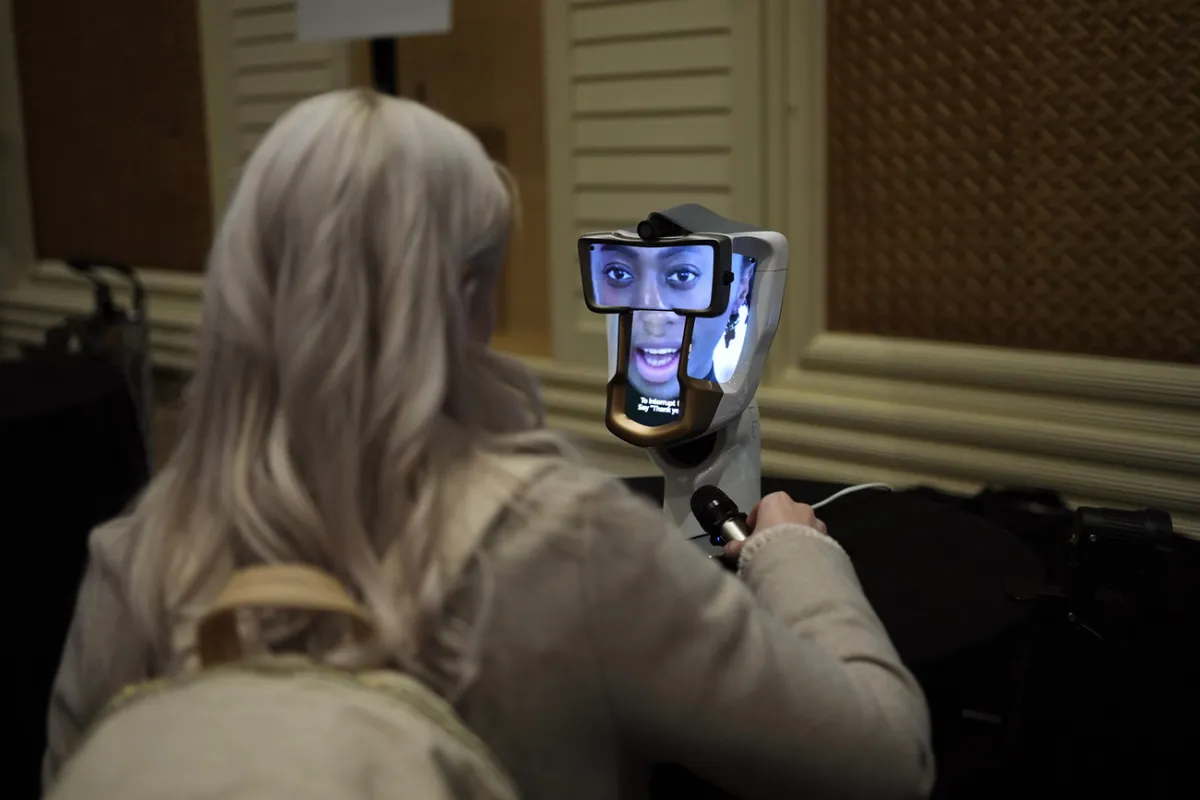
Switzerland Aspires To Build 'Human' Artificial Intelligence
I analyse the risks, opportunities and concrete impacts of artificial intelligence on society and everyday life. Since joining SWI swissinfo in 2020, I translate the complexity of science and technology into stories that speak to a global audience. Born in Milan to an Italian-Egyptian family, I have been passionate about knowledge and writing since childhood. I worked between Milan and Paris as a multilingual editor for technology magazines before transitioning to international journalism with SWI swissinfo.
-
More from this aut
Italian Departm
-
Deutsch
de
Die Schweiz strebt nach ((menschlicher)) KI
Read more: Die Schweiz strebt nach ((menschlicher
Français
fr
La Suisse aspire à une IA aux capacités cognitives ((humaines))
Read more: La Suisse aspire à une IA aux capacités cognitives ((humai
Italiano
it
La Svizzera aspira all'intelligenza artificiale“umana”
Original
Read more: La Svizzera aspira all'intelligenza artificiale“u
Español
es
Suiza aspira a una inteligencia artificial ((humana))
Read more: Suiza aspira a una inteligencia artificial ((hum
Português
pt
Startup suíça supera GPT-5 em teste mundial de inteligência artificial
Read more: Startup suíça supera GPT-5 em teste mundial de inteligência artif
日本語
ja
スイスが挑むAI新時代 「人間のような知能」への挑戦
Read more: スイスが挑むAI新時代 「人間のような知能
العربية
ar
سويسرا تسعى إلى تطوير أداة ذكاء اصطناعي تشبه العقل البشري
Read more: سويسرا تسعى إلى تطوير أداة ذكاء اصطناعي تشبه العقل ا
中文
zh
瑞士立志研发”类人”人工智能:AI能否真正学会思考?
Read more: 瑞士立志研发”类人”人工智能:AI能否真正
Русский
ru
Сможет ли Швейцария создать ((человеческий)) ИИ?
Read more: Сможет ли Швейцария создать ((человеческий)
Since the public launch of ChatGPT in 2022, millions of people have become used to interacting with AI as if it were a person. But so far, no AI tool has proven to be intelligent in the“human” sense of the term.
The most popular public-facing AI platforms are Large Language Models (LLMs) that make predictions based on recurrent patterns learned from massive amounts of data. Most are unable to learn in real time and adapt to new information the way the human mind does.
“They give us the illusion that they are as intelligent as we are, but this is just statistical imitation, not true understanding,” says Torsten Hoefler, a professor in the department of computer science at the federal technology institute ETH Zurich.
To bridge the gap between humans and machines, companies and research institutes around the world are racing to develop artificial general intelligence (AGI), defined as human-level understanding and adaptability. AGI is the goal of many in the AI field because it would allow machines to perform virtually any task with the accuracy and flexibility of a human being.
In Switzerland, some developers think they are close to developing AI with human intelligence. But some experts question whether LLMs or similar models could ever be enough to get there, and whether“human” AI is even a desirable goal.
Testing machine intelligenceAt the centre of the race is a Swiss start-up, Giotto, which currently leads the ARC PrizeExternal link, a global competition that measures how close AI systems are to human-like reasoning through a series of visual puzzles. At the time of writing, Giotto reported solving 27.08% of the puzzles, outperforming very popular large language models such as Grok 4 and GPT-5. The current leg of the competition ends on November 3.
The Abstraction and Reasoning Corpus (ARC)External link is one of the world's leading benchmarks for measuring progress toward artificial general intelligence. It consists of visual puzzles that test an AI's ability to reason abstractly and generalise from examples – tasks that humans can typically solve relatively easily but that remain difficult for current AI systems.
An example of an ARC puzzle. The AI must understand the hidden rule, following the example in the input images (left), and apply it in the output images (right). arcprize
The Davos-based research institute Lab42 is also pursuing artificial general intelligence by supporting programmers around the world who are trying to solve the ARC tests with their own projects. In 2024, the institute reportedExternal link it set a new world record, with one of its teams solving 34% of the ARC tests in an unofficial challenge.
>> Read more about Lab42' s aim to become an AGI hub in the Alpine town of Davos:
More More A 'neutral' hub for artificial intelligence in the Swiss AlpsThis content was published on Feb 2, 2023 Davos wants to become a research hub for“politically neutral” artificial intelligence to counterbalance the influence of China and the US.
Read more: A 'neutral' hub for artificial intelligence in the Swiss
Legal Disclaimer:
MENAFN provides the
information “as is” without warranty of any kind. We do not accept
any responsibility or liability for the accuracy, content, images,
videos, licenses, completeness, legality, or reliability of the information
contained in this article. If you have any complaints or copyright
issues related to this article, kindly contact the provider above.


















Comments
No comment